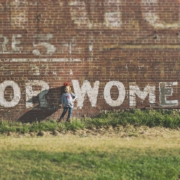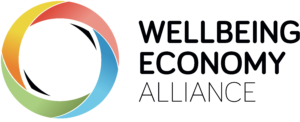By Anna Haw and Isabel Nuesse

This image which sparked memes all over the internet in the last month may compel more people to rethink our consumer-driven habits and current state of our economy….or so we hope.
As consumers, we rarely give much thought to how the multitude of things we buy make their way across the planet and into our homes. That is, until the Ever Given (400m long packed with up to 18,000 containers) stopped $9.6 billion dollars’ worth of products each day that it was stalled in the Suez Canal. That’s $6.7 million a minute. This debacle reveals the true scale of our global supply chains, and broader global economic system.
How is it that one ship can have such an impact? That so many goods depend on a single waterway, and that 6 days of disruption can amount to over $50 billion in losses?
With so much money being lost, resources were swiftly mobilised to solve the frantic halt of the Suez Canal. It’s remarkable really, that our dependence on this consumer culture and our need to keep trading goods catalysed a global upheaval.
The focus on incessant GDP growth has necessitated a relentless drive to create and trade goods, no matter the cost to the environment or human wellbeing.
This shipping fiasco serves as a clear metaphor of our current economic system. We have an economy that lacks resilience, makes little practical sense and is so heavy that changing direction is almost impossible, despite obvious imminent danger.
The comparatively tiny tug boats and bulldozers working together to dislodge the massive ship are akin to the many initiatives that are working to dislodge the current economic system. What’s needed to uproot the current economic system is a rising tide to provide much-needed support and create an enabling environment to the many profoundly positive new economic initiatives that are desperately trying to change the course of our damaging economy.
We can create this rising tide.
It will take incredible mobilisation, bold action, risk and ultimately embracing long-term goals.
There was support and media attention at all angles covering the crisis of Ever Given. Yet our current economic framework is a part and parcel of causing these crises. Rather than applying a band-aid at vast expense, or incessantly reporting on how many billions of dollars are being lost, let’s focus on the root of the problem. Are we throwing resources at a framework that is too centralised, single-minded and outdated?
What if a potentially catastrophic global trade event can be viewed instead as an opportunity to give our system a re-think? Do we need to keep purchasing goods at the current rate that we are? Can consumers buy less, share more and redistribute our wealth to support initiatives working towards achieving social justice on a healthy planet?
As the Ever Given moves forward towards its destination with hundreds of other laden ships in its wake, let us not miss the opportunity to think about what our society’s priorities are, and where we’re mobilising our resources.
We do have the capacity to catalyse, dramatically shift and re-route our economic system, so what’s stopping us?
Image: Suez Canal Authority via AP






